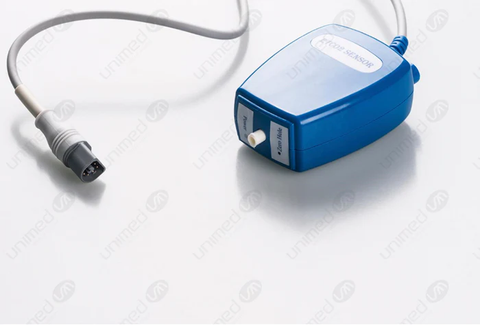ETCO2 Sensor Technology for Enhanced Patient Monitoring
Accurate and reliable patient monitoring is crucial in healthcare settings to ensure optimal care and patient safety. One essential component of patient monitoring is the use of ETCO2 sensors. In this article, we will explore the significance of ETCO2 sensor technology in enhancing patient monitoring and introduce Unimed as a trusted provider of advanced medical monitoring solutions.

Understanding ETCO2 Sensors
ETCO2 sensors, short for end-tidal CO2 sensors, play a vital role in measuring the concentration of carbon dioxide in a patient's exhaled breath. They are designed to provide real-time data on a patient's respiratory status, helping healthcare professionals monitor ventilation and assess the effectiveness of interventions. By analyzing the ETCO2 levels, medical teams can make informed decisions and take prompt actions to optimize patient care.
Unimed's Advanced ETCO2 Sensor Solutions
As a leading provider of medical monitoring technology, Unimed offers a comprehensive range of ETCO2 sensor products that meet the diverse needs of healthcare professionals. Our ETCO2 sensors are compatible with various monitoring devices and systems, ensuring seamless integration into existing healthcare environments. With Unimed, you can trust in the quality and reliability of our ETCO2 sensor technology.
Features and Advantages of Unimed's ETCO2 Sensor Technology
Unimed's ETCO2 sensors are engineered with advanced features to deliver accurate and precise measurements. Our sensors are designed to provide fast response times, allowing healthcare professionals to monitor changes in CO2 levels in real-time. Additionally, our ETCO2 sensors demonstrate excellent durability and longevity, ensuring reliable performance throughout the patient's monitoring period.
Applications and Benefits of Unimed's ETCO2 Sensors
Unimed's ETCO2 sensors play a vital role in anesthesia and critical care settings, providing healthcare professionals with crucial information about a patient's respiratory function. End-tidal carbon dioxide (ETCO2) monitoring is a non-invasive method that measures the concentration of carbon dioxide at the end of each exhaled breath. This monitoring is essential in assessing ventilation and the overall respiratory status of patients.
During anesthesia procedures, Unimed's ETCO2 sensors enable healthcare professionals to closely monitor a patient's respiratory function in real-time. By continuously measuring ETCO2 levels, healthcare providers can quickly detect any changes or abnormalities in a patient's ventilation. This allows for the early identification of potential complications, such as airway obstructions, hypoventilation, or hyperventilation, and enables healthcare professionals to make timely adjustments to ventilation strategies.
Conclusion
ETCO2 sensor technology plays a vital role in patient monitoring, empowering healthcare professionals with valuable respiratory information. Unimed, as a trusted provider of medical monitoring technology, offers advanced ETCO2 sensor solutions that meet the highest standards of quality and reliability. By choosing Unimed's ETCO2 sensors, healthcare practitioners can enhance their patient monitoring practices, optimize care delivery, and improve patient outcomes.

























